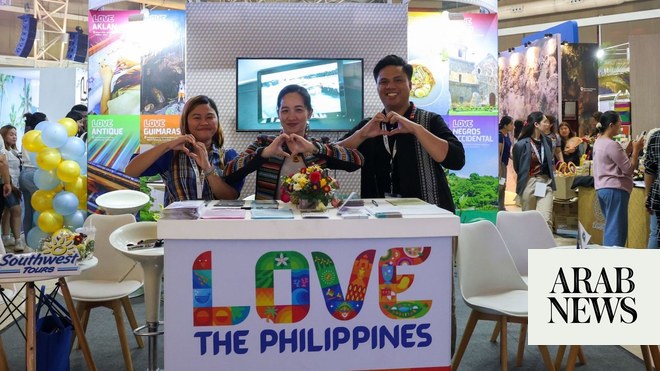MANILA: The Philippines is stepping up its efforts to cater to Muslim tourists and is working to get more hotels and restaurants halal certified in the country, officials said.
Tourism is an important industry in the archipelago, known for its white sand beaches, diving spots and diverse culture, contributing about 13 percent of the Philippines’ gross domestic product, or about $44 billion, in 2019.
The Tourism Ministry has recently been trying to attract more Muslim tourists from around the world, particularly by ensuring halal certification for restaurants.
“All regions in the Philippines… are taking Muslim-friendly initiatives… We are doing the same across the country… We will continue to encourage restaurant owners to be Muslim-friendly and eventually we will set up our own halal kitchens,” Transportation Undersecretary Mila Paz Abubakar told Arab News over the weekend.
The Catholic-majority Philippines, where Muslims make up about 10% of the population of 120 million, is also working to develop the country’s overall halal industry, with plans to double the number of halal-certified products and services by 2028.
Earlier this month, the tourism department led a delegation to Dubai’s Arabian Travel Market to promote the best of the country’s tourism to international markets at a time when tourist numbers from the Middle East are on the rise.
According to official data, the Philippines has welcomed more than 2 million international tourists since the start of the year, including a 10 percent increase in visitors from Gulf countries, primarily Saudi Arabia and the UAE, one of the Manila government’s key emerging market targets.
But the Southeast Asian country is also keen to attract international Muslim tourists beyond the Gulf, Abubakar said.
“DOT is not only targeting the Middle East market but also neighbouring countries such as Brunei, Indonesia and Malaysia,” she said, listing Muslim-majority countries in the region.
Last year, the Philippines won the “Emerging Muslim-Friendly Destination of the Year” award at the Halal in Travel Global Summit in Singapore.
Since then, the Islamic market has become a priority for the country’s tourism sector.
“We are preparing certification for Muslim-friendly hotels and restaurants… We are trying to be especially prepared with regards to food, because we know that food, halal certification, is very important,” Marie Elaine Unchuan, regional director at the Ministry of Transport, told Arab News.
She said the Philippines has the third-largest Muslim population in Southeast Asia and is making preparations to be as halal-friendly as possible during the international tourism expo, as Philippine authorities are frequently asked about their readiness to accommodate Muslim tourists.
“That was one of the questions… Are there any restaurants that are halal certified? Are there any hotels that are Muslim-friendly? So we are taking it seriously. We want to be well prepared so that we can do more marketing.”

